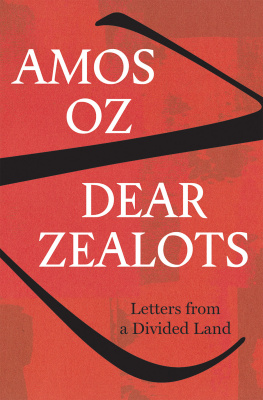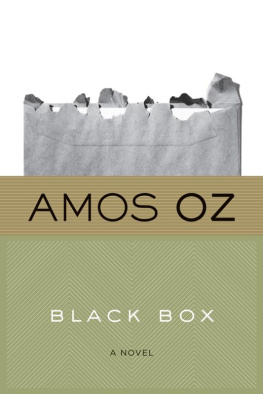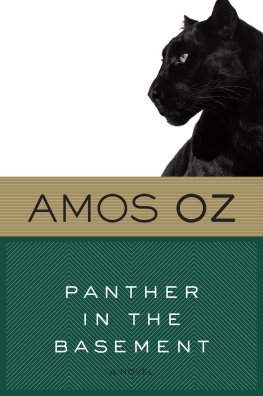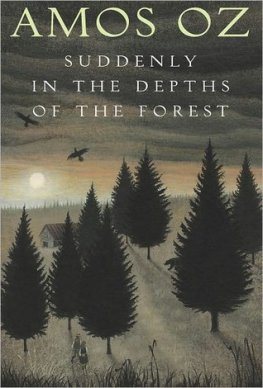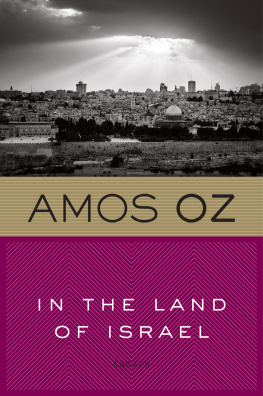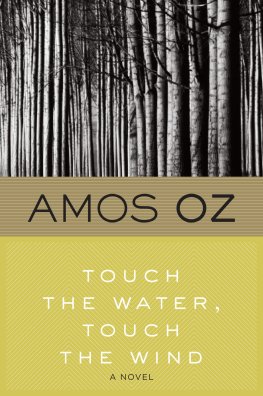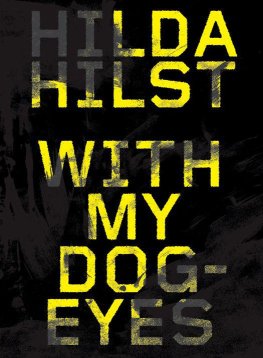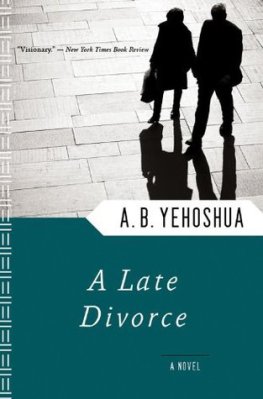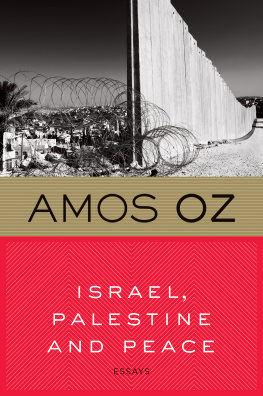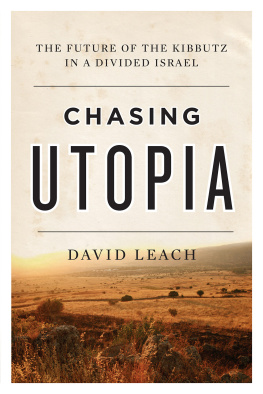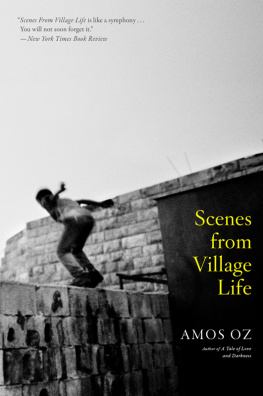One day a man may just pick up and walk out. What he leaves behind stays behind. What's left behind has nothing to stare at but his back. In the winter of 1965 Yonatan Lifshitz decided to leave his wife and the kibbutz on which he had been born and raised. He had finally made up his mind to run away and start a new life.
All through his childhood and adolescence, and for all his years in the army, he had been hemmed in by a tight little circle of men and women who had been interfering every step of the way. He had begun to feel they were keeping him from something and that he mustn't let them do it any more. Often, when they sat around talking in their usual way of some "positive development" or "negative phenomenon," he could barely grasp what the words meant. Sometimes when he stood by himself at a window toward the close of day to watch the birds fly off into the twilight, he calmly accepted the certainty that these birds will all die in the end. Should an announcer on the evening news speak of "grave indications," he would whisper to himself, So what? If, while taking an afternoon ramble by the burned-out cypress trees at the far end of the kibbutz, he should run into someone who asked what he was doing there, he would say, as if loath to reply, "Oh, I'm just walking around." Yet a moment later he would ask himself, "What am I doing here?"
A splendid fellow, they said of him on the kibbutz. If only he weren't such an introvert. But that's the way he is, they said. A sensitive soul.
Now, at twenty-six, of a reserved, or was it pensive, demeanor, he found himself longing to be alone at last, entirely alone, to find for himself what it was all about. There were times he felt his whole life passing by in a clamorous, smoke-filled room where a tedious argument about some bizarre matter dragged endlessly on. He neither knew what this argument was about nor wished to take part in it. The only thing he wanted was to pick up and walk out, to go someplace else, a place where he was waited for and would not be waited for forever. Benya Trotsky whom Yonatan had never seen, not even in a photograph had run away from the kibbutz and from the country in 1939, six weeks before Yonatan was born. He was a raving theoretician, a fiery student from Kharkov who had chosen to become a conscientious laborer in a stone quarry in the Upper Galilee. Then he lived for a while in our kibbutz, where, against his principles, he fell in love with Hava, Yonatan's mother; he loved her in the most honored Russian fashion with tears, oaths, and feverish confessions. It was too late, for Hava was already pregnant by Yolek, and had moved into his cabin at the far end of the settlement.
One evening, at the end of that winter, after endless complications, letters, threatened suicides, hysterical cries behind the hayloft, group discussions, efforts to find a reasonable solution after a nervous breakdown and a discreet medical treatment it came this Trotsky's turn to stand guard duty. Armed with the kibbutz's antique revolver, he had faithfully watched over us until the break of dawn, when, stricken by ultimate despair, he lay in wait for her in the bushes by the laundry room. Leaping out he fired at her at close range. Then, with the piercing howl of a shot dog, he ran blindly to the cowshed, where he fired twice at Yolek, who was finishing the night milking, and once at Stakhanov, our only bull. With startled kibbutzniks, roused from their beds by the shots, now hot on his heels, the wretched man dived behind a pile of manure and aimed the last bullet into his own brain.
All those shots had missed their targets, and not a single drop of blood had been shed, yet the lovesick youth fled the kibbutz, and even the country. He ended up a hotel tycoon in Miami Beach, a holiday resort in East America. Once he sent us a large donation for the construction of a music room. At another time he wrote us a letter in a strange Hebrew. In this he aspired, or threatened, or simply volunteered, to be Yonatan Lifshitz's real father.
On the bookshelf in his parents' home, hidden among the pages of an old Hebrew novel, Yonatan had once found a biblical-sounding love poem on a yellowing sheet of paper, apparently composed by this same Benyamin Trotsky. The lover in the poem though was called Eleazar of Maresha and his beloved Azuva daughter of Shilhi. It was entitled "But Their Hearts Were Not True." At the bottom of the page a few words were penciled in a round, untroubled handwriting. But Yonatan could not decipher those words because the letters were Cyrillic.
Never in all the years had his parents so much as mentioned the B. T. affair in his presence. Except once, during a fierce quarrel, Yolek had said to Hava in Polish, "Twj komediant," and she had hissed at him:
"Ty zboju. Ty morderco." ("You crook. You murderer.")
The whole thing was incredible, the old-timers on the kibbutz sometimes recalled. From a range of just two or three feet, that joker, he managed to miss a bull!
Yonatan was trying to imagine some different place, a place suitable for him, some way of working and resting just as he pleased, away from ever being encircled again.
His plan was to go far away, as far as he could get, to a place as different as it could be from the kibbutz, from the youth camps, from desert bivouacs, from the long lines of hitchhiking soldiers at road junctions blasted by hot dry winds and the stench of thistles, sweat, dust, and dried urine. Perhaps a strange, truly big city, with a river, with bridges, and towers, and tunnels, and fountains with monstrous gargoyles spouting water fountains nightly fingered by a rare, electric light, where a lonely woman might be standing, her face turned to the light of the water and her back to a square paved with cobblestones. A faraway place where anything is possible love, danger, arcane encounters, sudden conquests.
He fancied himself stalking with the light tread of a young jungle-cat the carpeted corridors of a cold, tall building, pushing past doormen into elevators whose ceilings glowed with round eyes, carried along in a stream of strangers, all intent on their own affairs, each utterly alone, his own face as inscrutable as theirs.
And so he had the idea of going overseas to study while working at some odd job, as a night watchman, say, or an attendant, or even a courier such as he had seen advertised for in a brief notice in the Help Wanted column of the newspaper. Not that he had the vaguest notion of what a courier might do, but something told him nonetheless, that's for you, friend. He imagined himself at the controls of the latest machines, before instrument panels and blinking lights, surrounded by determined men and cunning women. By himself at last, in a rented room high up in a skyscraper in some foreign city no doubt in America; no doubt in the Middle West of the movies, where he would spend his nights preparing for entrance exams, acquiring a profession that would set him out on the high road to life itself. And then on to the place where he was waited for, and would not be waited for forever.
At the end of that autumn Yonatan got up the courage to hint of his plans to his father.
Though it was Yolek, in his capacity as secretary of the kibbutz, who initiated the conversation. Early one evening he cornered his son at the foot of the stone stairs leading up to the recreation hall and urged him to take over the management of the tractor shed.
Yolek spoke in a low, secretive voice. A moist breeze blew over them. The evening light was clouded, the light between one rain and the next. A sodden bench was covered with wet walnut leaves. Wet walnut leaves had already buried a broken sprinkler and a pile of burlap sacks. Yolek was a broadly built man. From the shoulders down he was drawn in rough, straight lines, like a heavy packing crate, but his gray unhealthy face, with its scattered pouches of wasted skin, looked more like an aging philanderer's than a principled old socialist's. Whereas Yonatan was tall, thin, and slightly distracted-looking. He stubbornly kept his eyes on the bench, the buried sacks, and the broken sprinkler. Suddenly, in a low, rapid voice, he burst into a torrent of speech.


